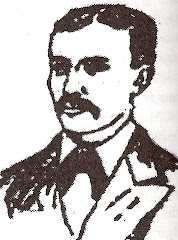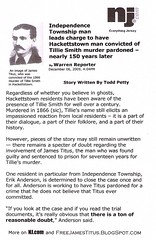Perhaps the emotional force of the crime and the need to call someone to account for it proved in the end more persuasive than either side's arguments.
A careful reading of the trial transcript supports the argument that Titus' guilt was never established beyond reasonable doubt. The state never proved that rape had been committed at the time and place alleged, let alone that Titus had committed it.
Consider this.
"Man's lust is a potent force," Prosecutor Henry S. Harris declared in the opening of a summation that went on to accuse Titus of sacrificing the life of Tillie Smith to it. Indeed lust is a potent force, but was thet state's position credible that Titus' lustful thoughts, evidenced by allegedly salacious remarks to Mead and others, foretold criminal activity? How many millions have made passing remarks of the same type and never followed them with an antisocial act? What minister has not had less-than-religious thoughts about a parishioner; what accountant has not considered embezzlement? Who can argue reasonably that the thought being the father of the deed extends, as a general rule, to crime?
Sullivan, Denis. In Defence of Her Honor: The Tillie Smith Murder Case. Flemington, NJ: D.H. Moreau Books, 2000. Chapeter Eight, Page 124






No comments:
Post a Comment